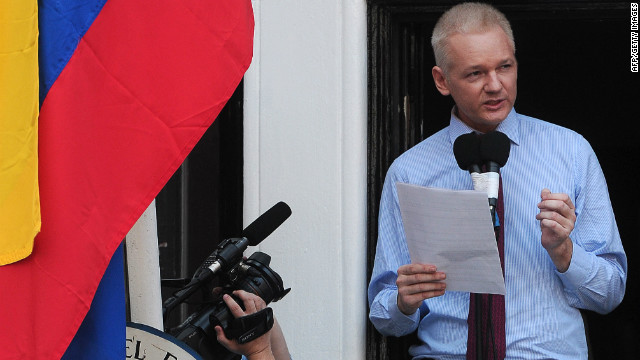Julian
Assange, founder of WikiLeaks, finds himself at the crux of an international
maelstrom this week as he seeks safe passage from the Ecuadorean Embassy in
London to the airport, where he will flee to Latin America and begin his
political asylum far from the clutches of Sweden and the U.S. This has
undoubtedly exacerbated tensions between the United States and Ecuador, and
earlier this week, the U.K. stated that it would exercise a little-known law in
order to legally enter the Ecuadorean Embassy and remove Assange. Australia remains
unsupportive of Assange while Sweden continues exhausting all possible ideas on
how to successfully get Assange back on Swedish soil and begin addressing
sexual assault allegations.
Julian
Assange, however, is a small indicator of a much broader trend sweeping through
Latin America: there is a new Left emerging, with many populist heads of state
alienating themselves more and more from the United States and the rest of the
Western world. In granting political asylum to Assange, Ecuadorean President Rafael
Correa may not be risking much diplomatically. It takes a lot more to draw the
ire of the United States at a time when Iran is blatantly ignoring global
exhortations to cease its uranium enrichment and Syrian President Bashar
al-Assad is likewise blatantly ignoring multilateral pressure to step down. But
President Correa is nevertheless acting defiantly, something his citizens will
see as a flexing of strength and a reason to continue supporting him.
This
is not the first time President Correa has aggravated relations between Ecuador
and the U.S. In 2008, President Correa decided not to renew the U.S. lease on
an air force base in Ecuador, effectively closing the base for good.
Coincidentally, in an interview with Mr. Assange back in May, President Correa
joked, “We can give the go ahead as long as we are granted permission to set up
an Ecuadorian military base in Miami.” The Ecuadorean people once again saw the
move, which outraged the U.S. government at the time, as a sign of strength,
something incredibly important to a relatively unimportant country. The
following year, President Correa easily won his re-election.
Ecuador is not alone in shuttering
the West from its affairs. Venezuelan President Hugo Chavez has been a staunch
opponent of the U.S. since he has been in office. Argentina has not been
without drama this summer either – several months ago they nationalized their
oil company YPF which had previously been a subsidiary of the Spanish oil giant
Repsol. This infuriated Spain, and led to the E.U. complaining to the WTO about
Argentinean licensing laws. Then just yesterday, Argentina filed a formal
complaint against Spain to the WTO, citing problems with Spain’s biodiesel
exports.
I’m not sure yet whether this trend
of populist left leaders is alarming or not. A decade or two ago, once the fad
of import-substitute industrialization disappeared in Latin America, there was
an increasing dependency on strong relationships with the West, primarily
because it was Western countries with the capital to purchase much of the oil
and other natural resources from Latin America. Today, this dependency has
vanished; China’s growing population and industrialization has given rise to
the need for natural resources, and China has almost enough capital to create a
perfect monopsony for Latin American oil exports. The thing is, the U.S.
doesn’t yet have a serious need for strong relationships in Latin America. They
contribute little to the global political arena in terms of military capacity,
diplomatic efforts, as well as aid. Let’s just hope that doesn’t change in the next
decade or two.


No comments:
Post a Comment